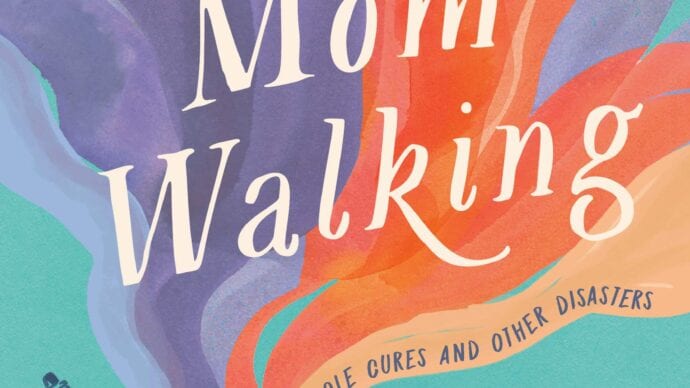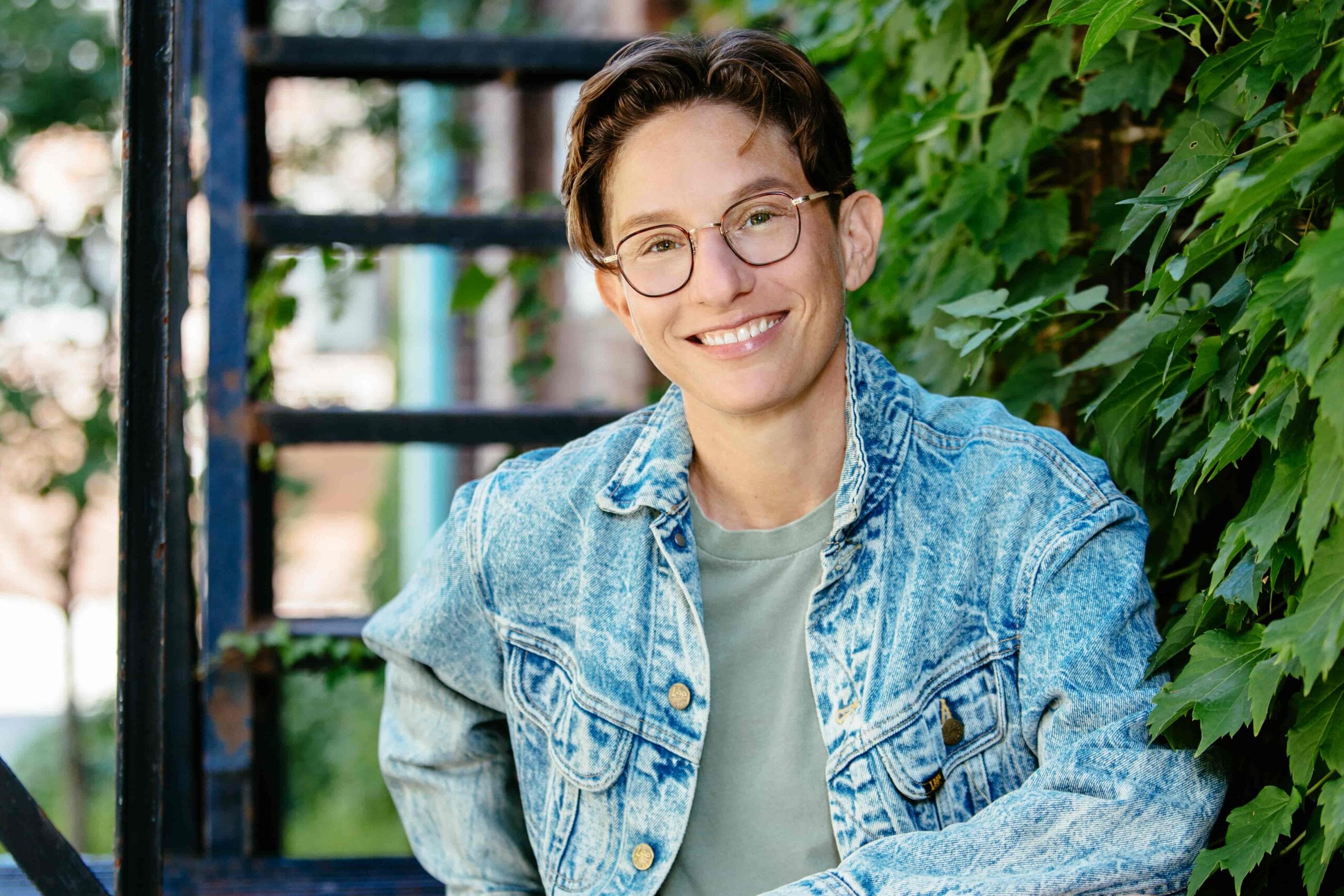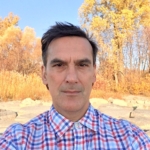I fell in love with Rachel Matlow and her mother Elaine Mitchell on page 11 of Matlow’s best-selling new book Dead Mom Walking: A Memoir of Miracle Cures and Other Disasters. Matlow paints a hilarious scene: She and her mom dying with laughter at comedian Sarah Silverman’s off-colour jokes as the rest of the Jewish Film Festival audience streams out of the theatre in disgust. “Fuck my tuchus! Fuck my tuchus!” is the least egregious punchline cited. Mother and daughter bonding over a shared sense of nonconforming humour is one of many finely honed entry points in this moving memoir, which charts Mitchell’s death from cancer five years ago. Matlow, a former producer for the popular CBC radio program Q, brings a journalist’s eye for detail—and a Jewish lesbian’s eye for the absurd—to stare down the third-eye woo-woo bunkum that her mother latches onto in order to avoid treating her cancer with traditional Western medicine. That avoidance leads to her death—and leads Matlow on a harrowing journey into unreason as she repeatedly bangs her head against the wall of her mother’s indomitable will. Matlow’s insightful, generous writing takes the reader on a heart-rending journey brimming with life and laughter. At this unprecedented moment in history, when we are all grieving so much—whether it’s for the death of a loved one from COVID-19, or the death of a way of life and future possibilities—Matlow’s book is a welcome invitation to focus on what’s essential; to find in life those things worth fighting for. I spoke with Matlow about her wonderfully eccentric mother, attitudes toward death and what she learned by writing this book.
Do you have any thoughts about how we as a society deal with death and grief?
I think we’re a very death-phobic culture, a death-avoidant culture. We don’t talk that much about death or dying or grief. Most of us act as if we’re just fine—and maybe we are. But it’s probably good for us to talk about it more. Maybe the comedy part of my book can help open up that conversation.
A conversation without euphemisms.
God forbid, we actually say “die.” People say “passed” all the time, to sugar coat it or make it just a little nicer. Even journalists are saying “passed”—that bothers me. They shouldn’t be using metaphors: The person died.
“Dead mom” is in the title of your book.
Passed Mom Walking doesn’t have the same ring to it.
Can you speak about how love and anger can be the flipside of each other?
Writing the book got me more in touch with my emotions. There was a certain amount of numbness that went on just trying to survive the real-time experience of living through this. So afterward, sitting with my laptop week after week and going to therapy forced me to sit with my emotions and practise them in a way I hadn’t before. I felt a lot of anger in the process of writing the book. I’d be a little pissed off, like, “Mom, why did you have to go through that?” But then there are also times when I loved her so much. She was the most amazing mom ever. And I think that’s healthy, that’s normal. Just because someone’s dead doesn’t mean you can’t still be pissed off at them. I had to take her off the pedestal I always put her on—I always took her at face value; I believed her story, I believed her idealized narrative. Part of my process was seeing her as more of a complete person—wonderful, but also with her own shit. By being able to deal with that, I got to know her better. I got to sympathize with her more. As I say in the book, I got to love her better.
Amidst this crazy, maddening, sad story about your mother, you also find yourself at the centre of an incredibly disturbing story with national implications: the sexual assault charges against Q host Jian Ghomeshi. Why did you decide to include that in the book?
It was actually happening in my life at the time, so it would be weird to not to—that was the context for my life. No doubt my work situation affected how I dealt (or didn’t) with what was going on with my mom. When mom first received her diagnosis, I had already been at Q for a couple years. On the surface, it might have appeared that Jian and I had a good relationship. We called each other brother; he called me little bro in the credits. But I was always on edge, always anticipating his next subtle power move or big blow up. It was a difficult environment to be working in. By the time my mom started drawing me into her alternative-healing-magic world, I was already used to being gaslit on a daily basis. I was already off balance. It was incredibly disorienting for both of these things to be happening at the same time. There are a lot of interesting parallels in both cases: When I tried to speak out, I was shut down repeatedly. In order to keep my job and my good relationship with my mom, I had to develop these coping strategies that I never thought I would: I suppressed things, I spoke out less, I started doubting the facts in front of me. What’s interesting in both scenarios [is that] the toxicity could not be contained.

Credit: Courtesy Penguin Random House
What’s queer about this book, besides yourself?
Oh, I love that question. I was hoping you were going to ask me, because I do think it’s a very queer book. And a very Jewish book. There’s a big Venn diagram when it comes to those two. Queer is a verb; it’s not just a noun. It means “twist.” And I think my story and the characters are all about defying conventions, if not cancer. My mom may have been technically heterosexual, but she was definitely very queer in that she was alternative and offbeat and she wrote her own script. So much of what defines being queer is that we have to write our own script in life, and my mom always wanted to be the author of her own story. She defied expectations placed on women for her time—and she queers narratives of the Jewish mother, too. She never made chicken soup in her life, and she never really made me feel guilty. And then there’s the dark humour—it’s part of the Jewish tradition but it’s also part of the queer tradition. By using dark humor in this brutally honest approach, I do think my story confronts and queers the usual narrative of cancer and death, not to mention mother/daughter relationships.
There’s a gay male cliché about being fixated on powerful, eccentric mothers. I’m a living example of the truth of that cliché. So, as a queer woman, how do you fit in to that cliché?
I’m you. I’m the gay male cliché. My mother always said I was more like a gay man than a lesbian daughter. I liked to look at fashion photography with her, I liked to go to art museums with her and help pick out her clothes. I’m a 75-year-old Jewish man—that’s probably what I am mostly, with a little bit of gay man [thrown in]. I did play softball and I still play hockey, so I definitely live up to some lesbian stereotypes. The only thing I’m not is a heterosexual woman—I know I’m not that.
The book is structured around your search to understand how your mother, an otherwise highly intelligent and accomplished woman, could have believed in alternative medicine so blindly. How frustrated are you at some of these crackpot ideas?
A huge part of why she was drawn to her healers was that they took into account her emotional world. That is relevant right now, in the time of COVID, [because that’s often a] failure on the part of conventional medicine. Ideally, we should treat the body as well as the mind and emotions. You see it now in people’s reactions to the pandemic. All these alternative treatments are popping up, all these alternative healing claims: COVID-19 testing over the phone, just gargle with garlic, take silver colloidal… These things proliferate in times when there is chaos and a lack of control.
So how is this going, doing press on a book about your dead mother?
It’s weird but it’s very lovely. A lot of people are writing to me. Especially in this time [of physical distancing], it’s nice to have this emotional connection with people even if it’s not in person. That’s why we write and share stories: To feel connected to other people. I mean, that’s why I did.


 Why you can trust Xtra
Why you can trust Xtra


